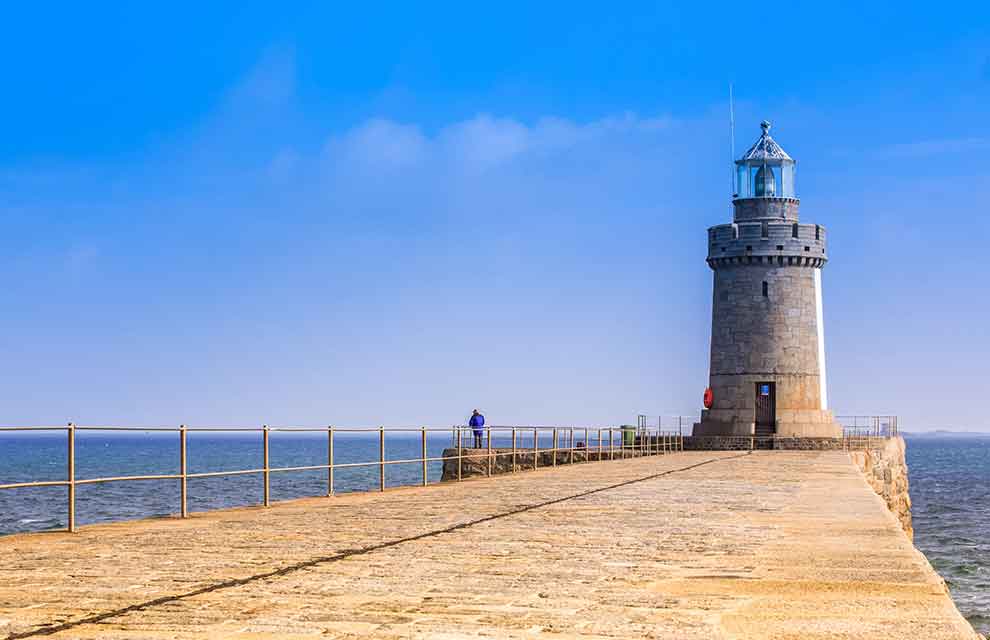Industry participants discuss Guernsey’s status as a leading captive domicile and the factors that have spurred innovation in the ILS market of the Channel Island
As a strongly established captive domicile, Guernsey holds access to both UK and European markets owing to its geography and status as a financial hub as a result of a closely linked funds industry and insurance sector. This sector has facilitated several notable, innovative world-firsts in the island’s insurance-linked securities (ILS) market. Other developments in the jurisdiction include burgeoning commitment to environmental, social and governance (ESG) principles, and regulatory structures promoting the tax transparency, anti-money laundering (AML) and anti-base erosion and profit shifting (BEPS) efforts of the Organisation for Economic Co-operation and Development (OECD).
These developments were discussed by industry professionals last month at We are Guernsey’s webinar, ‘ILS Insight: The Origin of Innovation’, which examined the landscape of Guernsey’s current ILS market following a recent trend of diversification from catastrophe risks (such as hurricanes and earthquakes) to more regionalised and medium risks, including operational, pandemic and terrorism risks.
Rupert Pleasant, CEO of Guernsey Finance, began the session by identifying the advantages of Guernsey as a domicile, explaining: “Guernsey has the authority and autonomy to create its own laws, allowing for quick innovation. The government and financial services industry can work together to introduce appropriate laws to ensure they retain their excellent reputation of stability, substance and innovation.”
Best of both worlds
Guernsey is a unique domicile in that it has a close working relationship with the UK (for example, UK free trade deals extend to the island) as a territory of the Crown, rather than based on political considerations. Therefore, the jurisdiction does not tend to be severely affected by political, legal or fiscal volatility on either side of the English Channel.
Following Brexit, Guernsey has unchanged access to the UK’s financial services, while maintaining its third-country status with the EU as a specialist leader of the European private equities market.
Research into fund workflows commissioned by the States of Guernsey last year revealed that in mid-2019, Guernsey-domiciled funds enabled a capital flow of £41.6 billion (US$57.2 approx) into the UK, as well as a further £77.1 billion into Europe and £43 billion into the US.
Adele Gale, director and group head of ILS at Robus Group, added during the ILS webinar that “Guernsey is uniquely placed to bring together capital and risk because of our funds industry sitting alongside our insurance industry here. It is imperative for a domicile to have an infrastructure beyond the insurance sector, for example, lawyers, auditors and fund administrators. This ecosystem makes Guernsey an attractive and sound proposition when looking at an innovative structure.”
Pleasant says: “The world is increasingly looking for economic and physical substance in a jurisdiction, which is specifically the case for all regulators and supervisors. As a result, the substance of some jurisdictions is now coming into question. Guernsey on the other hand scores highly on all measures and has benefitted highly from these increased requirements.”
From this, Guernsey has earned a favourable reputation as Europe’s leading captive domicile, with Pleasant noting: “Guernsey’s insurance sector is pioneering and innovative, boasting a position of leadership in the structuring and execution of alternative risk transfer. It goes without saying that we are a leading global finance centre.”
The island’s captive market is bolstered by its physical proximity to London and European markets, established regulatory infrastructure, and a risk-based approach outside of Solvency II which adheres to international standards.
Going green
In addition to these benefits, Gale notes that Guernsey is also an attractive captive domicile owing to the recent framework by the Guernsey International Insurance Association (GIIA), which ensures that ESG is a significant factor during the underwriting and investment decision-making processes by Guernsey insurers in all areas, including ILS transactions, captives, cells and reinsurers.
“Guernsey is the first jurisdiction in the world to develop an ESG framework specifically for insurers,” adds Kate Storey, finance, corporate and funds partner at Walkers (Guernsey). “The framework provides Guernsey insurers with a road map for implementing and demonstrating ESG values in their business operations, and those insurers that adhere to the framework (as assessed by a third-party accreditor) will be able to obtain an ESG kitemark evidencing their commitment.”
This was affirmed in the webinar, with Pleasant adding: “The most important development in the financial services industry in the last few years is the subject of green, sustainable, ESG-centred finance. Something often forgotten is that capital in Guernsey is channelled into philanthropic, charitable and ESG-centred sources. This is a key area of focus in Guernsey, where we are very proud of our commitments.”
This is demonstrated in Guernsey’s international engagement as a member of several United Nations (UN) initiatives, including Financial Centres for Sustainability, the Sustainable Insurance Forum, the Sustainable Stock Exchanges, and the Network for Greening the Financial System.
Guernsey also operates the first regulated and accredited green fund solution, and is home to The International Stock Exchange (TISE), which operates Europe’s most comprehensive sustainable market segment.
Regulation
As a domicile, Guernsey is commended for its commitment to economic substance and tax transparency, having been whitelisted by the OECD and the EU in 2009 and 2019, respectively. The island was also named a co-operative jurisdiction by the OECD in 2015.
Guernsey’s close working relationship with the OECD is affirmed by Storey. She says: “Guernsey is well respected for its robust yet proportionate and flexible regulatory framework, having been one of the first international finance centres to have been whitelisted by the EU and the OECD for its standards of tax transparency and anti-BEPS compliance, including its economic substance regulation.”
Guernsey signed the organisation’s Multilateral Instrument, adopted the common reporting standards for the automatic exchange of information, and formed a programme of alignment with future BEPS initiatives to prevent tax avoidance vehicles.
Furthermore, the island is largely compliant with 48 out of 49 of the Financial Action Task Force’s recommendations on AML and combating financing of terrorism. Guernsey has also made several amendments to its economic substance legislation to bolster the standards of tax transparency, fair taxation and BEPS measures.Although Guernsey is outside the parameters of Solvency II, it has a risk-based approach to solvency requirements which is in fact quicker and more proportionate for captives than the requirements of the directive owing to its pre-authorisation licensing regime. Storey explains: “Under this regime, a captive cell can be established and start writing business within as little as 48 hours, provided the relevant documentation is submitted to the Guernsey regulator within 14 days of commencement of business.”
In the webinar, Gale emphasised the importance of the regulator when selecting a domicile, as it must operate consistently within set parameters. “I am pleased to say that our regulatory framework is compliant with the core principles of the International Association of Insurance Supervisors. All of us insurance managers on the island are well equipped to advise clients on how the regulator is likely to view their proposed structure.”
ILS innovation
The combination of a strong captive market, funds industry, ESG commitment and a regulatory infrastructure is beneficial to ILS structures. Pleasant describes this as a “hugely attractive weapon in the arsenal of institutional investors and private clients alike”, as an alternative asset class that can provide investors with diversification benefits owing to their low correlation, support of humanitarian efforts and possibility of earning a return.
Notable world-first ILS achievements in the jurisdiction include the launch of a private catastrophe bond, fully Sharia-compliant takaful securitisation, listed blockchain ILS transaction, protected cell company legislation, and approval of a dual-authorised structure to run an ILS fund and an insurer alongside each other.
Storey notes that some of these efforts were in response to the UN Secretary General expressing the need for more catastrophe-triggered financing and better instruments in order to support the delivery of climate risk financing, as well as to improve disaster resilience and fund adaptation measures.
“The ILS market is central to this initiative and Guernsey is expert in facilitating solutions in the ILS space,” she says.
“Guernsey can lay claim to several world-firsts across global financial services, particularly in the insurance sector. The island is home to the world’s first parametric fuel freight insurance programme and, earlier this year, the world’s first catastrophe bond was launched, covering pure volcanic eruption using a Guernsey-based ILS structure,” Pleasant adds.
The catastrophe bond, billed as the first volcano-only and humanitarian cat bond, was facilitated by Guernsey-based platform Replexus, in which the parametric is triggered by volcanic ash plume height and wind direction. The bonds were settled using Replexus’ blockchain-based ILS platform.
Cedric Edmonds, founder of Replexus, stated in the ILS webinar that Replexus was founded to address some of the issues facing the ILS market, such as late reported losses in collateralised reinsurance books, the shift from illiquid to liquid ILS, and some rated carriers going into run-off.
Edmonds affirms that Replexus selected Guernsey as a domicile because of the “can-do attitude” of the service providers, namely incorporated cell companies, as well as the support of the Guernsey Financial Services Commission.
Storey notes that the fast track pre-authorisation regime for setting up ILS cells, combined with flexibilities in capital management unavailable in other ILS jurisdictions, makes Guernsey a vastly attractive ILS domicile. Additionally, the island’s fully collateralised ILS structure enables EU cedants to qualify for capital relief under Solvency II.
This sentiment was shared by Gus Majed, group CEO and founder of Paratus Group, responsible for the implementation of the parametric fuel freight insurance programme, who selected Guernsey for its potential for innovation and key geography. Majed affirms: “When choosing a jurisdiction, it has to tick all the boxes. Innovation is essentially taking the very best components of technology from several disparate industries and combining them to create a new idea or product. You need a coalition of the very best minds to ultimately look through substance over form in a dogmatic approach, otherwise it is too regimented. Ultimately, this rests on the regulator, and whether you can have a good rapport and discussion with them. Innovation is very important, and so is the ability to build a trusting relationship with the regulator. It is a demand-pull, rather than supply-push, product, where the clients are asking for a better way to manage their risk so they can concentrate on their primary industry.”
The parametric insurance programme integrates into Paratus’s overarching objective to be at the forefront of the transition to clean energy, while addressing significant market volatility as a result of the hardening market and COVID-19 pandemic.
Looking ahead
The hardening market has generated greater interest in alternative risk management as a whole, including captives and ILS structures. Captives can be utilised to access customised parametric insurance, and there is a burgeoning relationship between ILS and captives as those in the captive insurance industry require tailor-made ILS solutions as an alternative form of risk financing for a captive’s catastrophic loss exposure.
During the Q&A segment of the webinar, Edmonds notes that, despite being more cost-efficient, blockchain is unlikely to make ILS a more accessible asset class for smaller investors because it requires experience and a comprehensive understanding to be able to effectively model and portfolio the risk. “Retail investors are much better served by coming in through a fund and have a portfolio of risks managed by someone who understands what they are doing,” he affirms.
The webinar concluded with Pleasant stating he is hopeful that the first humanitarian catastrophe bond will be a catalyst for change, while Edmonds says Replexus will be working on more humanitarian and ESG transactions in the pipeline.
As for Guernsey, the increased interest generated by the hardening market and an existing reputation as a leading captive domicile ensures the jurisdiction is well positioned to see more gains in the future, with Storey adding she expects to see the island at the forefront of developments in the ILS and sustainable finance space in the next 18 months.





